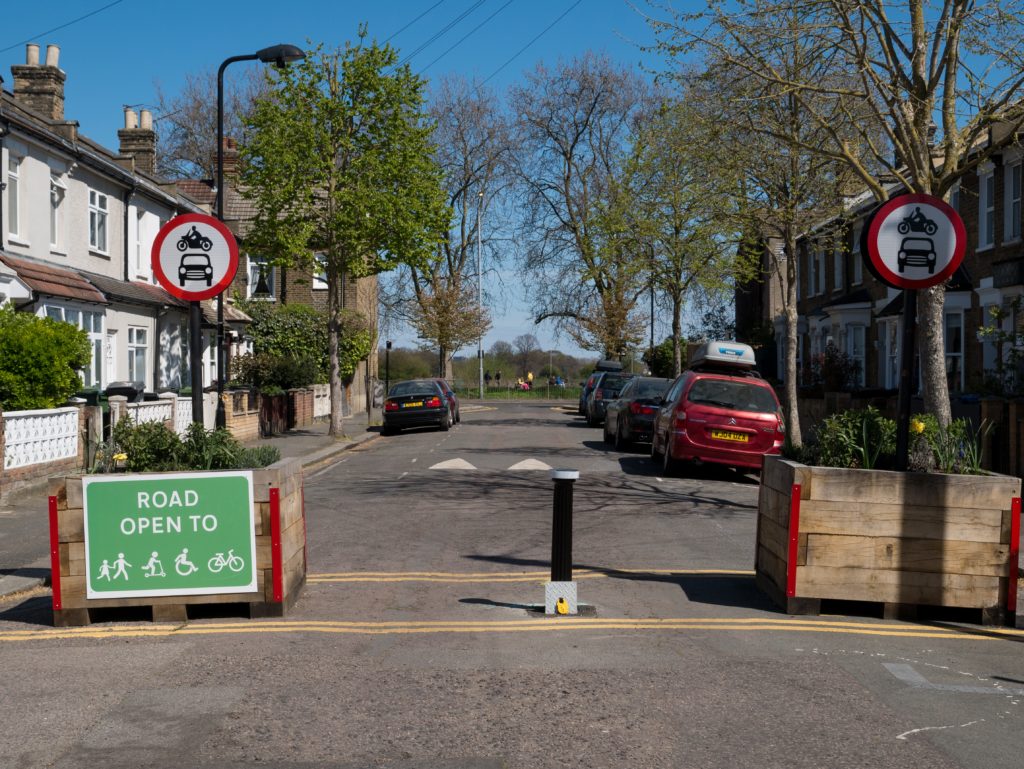The pandemic put the issue of urban air quality into the limelight and its place of primacy in the public imagination is not waning. Hurried policy responses of Low Emission Zones and Low Traffic Neighbourhoods have wreaked havoc on SMEs and taxi firms operating within our cities. With little government support for fleet greening or electrification, businesses are turning to litigation specialists such as Harcus Parker, to claim against the car manufacturers that sold them vehicles unfit for UK’s urban areas in the hope that they can be compensated for unwittingly purchasing ‘dirty diesels’.
It only took a few weeks into the first coronavirus lockdown in April 2020 for experts to point out the difference reduced traffic volumes made to urban air quality. Fewer cars on the roads and a hyper-awareness of what enters our lungs changed the conversation around air pollution, car emissions, and what governments, at both the local and national level, should do about it.
Research linking areas of high air pollution with more severe cases and higher rates of related illnesses made matters worse. For many, diesel drivers, taxis, and vans were now public enemy number one.
Plan Insurance can accommodate your Motor Fleet Insurance needs, We also offer innovative Pay Per Mile Insurance options. Just fill in our short online quote form, and our professional brokers will be in contact to arrange your insurance.
Policymakers in the UK channelled President John Kennedy’s Chinese cultural import 60 years prior. As he explained, “the Chinese use two brush strokes to write the word ‘crisis.’ One brush stroke stands for danger; the other for opportunity. In a crisis, be aware of the danger – but recognise the opportunity.”
With lockdown’s empty roads, political leaders spotted the opportunity to change their urban transport landscape. Box plants sprung up at the end of neighbourhood streets, concentrating traffic elsewhere. New cameras were installed to issue on-the-spot fines for polluting vehicles entering city centres at busy times of the day. As many fleet businesses were facing an unprecedented number of financial roadblocks and bottlenecks, the roads they rely on were facing new, very literal, roadblocks.
To make matters worse, certain business sectors , such as the taxi trade, that were already in need of support to upgrade vehicles in order to meet a raft of new standards, have received relatively little help from the government when compared with other sectors in the economy during the pandemic. The result has been devastation for many companies, not least London’s iconic black cabs; fields crammed with hackney carriages – ‘taxi graveyards’ – becoming the visual embodiment of this crisis.
However, where there is a crisis, there is opportunity. The reason diesel engines have become so despised by urban policymakers is because of their production of NOx emissions – toxic for human lungs, contributing to the premature death of 40,000 people a year in the UK and which a coroner has ruled ‘materially contributed’ to death of a young asthmatic girl in Lewisham, Ella Kissi-Debrah.
It was this reason that the production of NOx by diesel engines was heavily regulated to safe levels. Responsible business owners and taxi firms bought these diesels, thinking that they were both safe and produced fewer carbon emissions than their petroleum rivals.
Unfortunately, and as the dieselgate scandal has convincingly demonstrated, these cars do not produce safe levels of NOx when driven in the real world. Car manufacturers designed them to cheat emissions tests in the laboratory but not where it mattered. As a result, businesses and especially taxi fleet operators have been unwittingly poisoning the urban communities that they exist to serve.
As claims on behalf of consumers begin to gain momentum, one London law firm, Harcus Parker, believes that many businesses with fleets containing diesels manufactured between 2009-2018 will be eligible to claim against car manufacturers. If they are successful, businesses could receive thousands of pounds per vehicle, providing them with the finances necessary to invest in the fleets of the future. Ones that will not be barred from UK’s urban areas.
If you are a fleet operator or an individual interested in joining the claim, visit www.emissionsclaim.co.uk to find out more.


